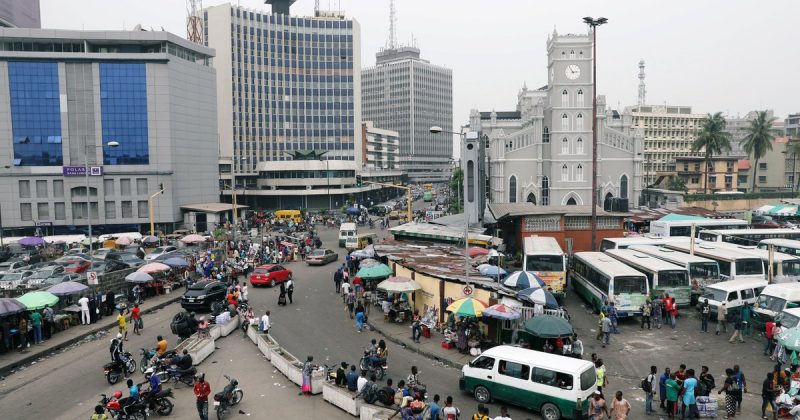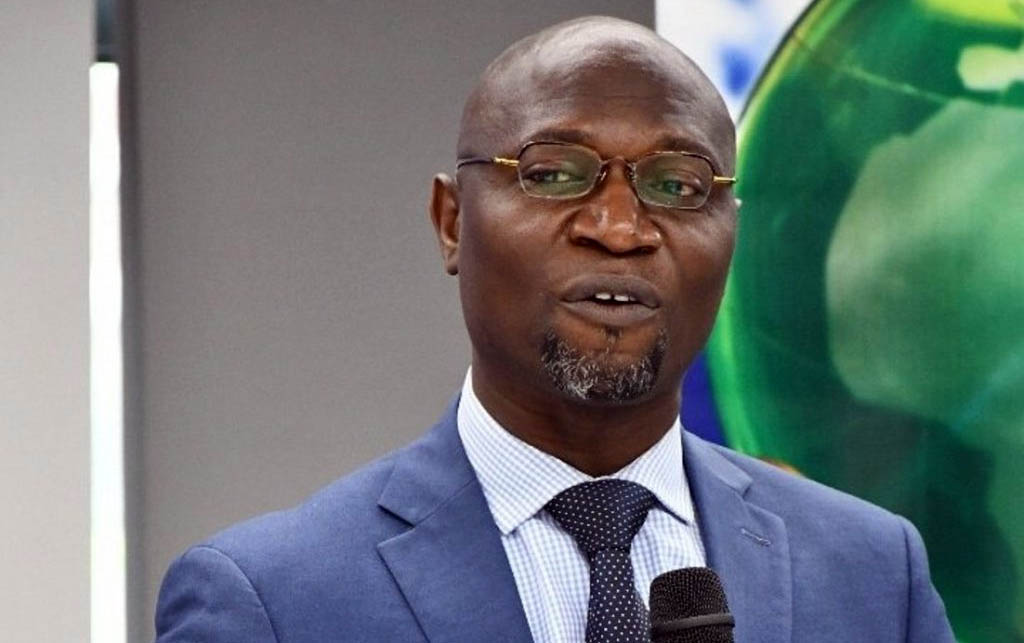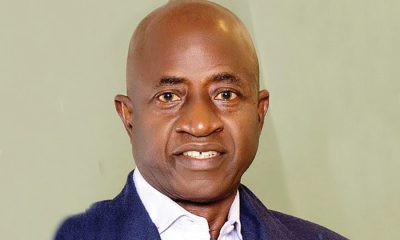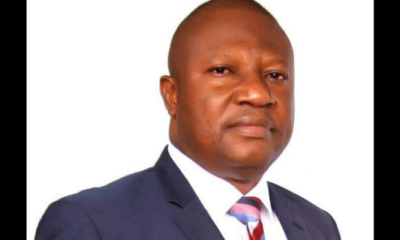Business
LCCI predicts galloping inflation, slow economy in 2021

The Lagos Chamber of Commerce and Industry (LCCI) has warned that 2021 economic outlook may not be bright as cost of living may rise due to higher inflation rate.
It specifically states that headline inflation will remain elevated as the combination of food supply shocks, forex policies, higher energy costs, forex illiquidity, heightened insecurity in major food-producing states will continue to mount pressure on domestic consumer prices.
In its Economic and Business Review for Year 2020 And Outlook for Year 2021 released on Sunday, the LCCI said it remained unclear what new strategies were in the works for the nation’s security situation.
The report released by the LCCI’s Director General, Dr. Muda Yusuf, noted that shortageof foreign exchange to businesses and end-users would remain a major economic issue in 2021.
According to the report, while forex supply will face continued pressure in 2021 in the light of relatively lower dollar inflows from oil, foreign investment, and diaspora remittances, the Central Bank of Nigeria (CBN) is expected to sustain its demand management strategies via rationing and restricting access to forex for food imports.
“In year 2021, the CBN will most likely maintain and initiate more demand management policy measures to taper growing demand for forex amid weak dollar inflows,” it said.
The LCCI said without bold policy pronouncements, constraints to the ease of doing business including foreign exchange shortage, escalating production costs, high regulatory costs, infrastructure inadequacies, and delayed cargo clearance, will persist into year 2021.
The report said the Nigerian policy environment is characterized by a great deal of uncertainty. The inconsistent and unpredictable nature of the policy and regulatory environment continues to hurt long-term investment planning and business projections.
Yusuf said, “These constraints will be more profound on businesses in the real economy. We believe the sluggish pace of recovery will continue to subdue consumer demand, albeit the impact on earnings performance will be disproportionate across sectors.”
He also said many Micro Small and Medium Enterprises (MSMEs) would struggle in the new year amid unfavourable economic conditions, large corporates are expected to demonstrate resilience in the coming year.
According to him, the economy will return to the path of positive growth in the second quarter of 2021 and this will expectedly impact on the macroeconomic environment which may ease some of the critical economic conditions currently impeding economic growth.
He said Nigeria’s trade dynamics with the global community is expected to remain almost unchanged in the short-term. With imports continuing to outpace exports, trade deficit is expected to widen in excess of N5 trillion in year 2020, thereby putting pressure on forex.
“Looking ahead in 2021, we expect crude oil to sustain its dominance in Nigeria’s export while manufactured imports will most likely dominate the country’s import bill. We anticipate sustained trade deficit in agriculture, manufactured goods and raw materials goods in year 2021,” he said.
The LCCI boss said total capital inflows for year 2021 might likely range between $10 billion – $11 billion, below 2018 and 2019’s levels. The forex policies, security challenges, sustained fiscal & external risks, infrastructure inadequacies, policy credibility concerns and regulatory bottlenecks may keep capital importation subdued in the short-term.
“Foreign Portfolio Investors (FPIs) are concerned about continual rise in negative real return rate on investment due to rising inflation and inability of FPIs to exchange naira repayments into forex. Given that these issues remain unresolved, we believe FPIs will remain cautious about naira-denominated investment securities in the short term,” Yusuf said.
He added that the value of Nigeria’s trade with the global community stood at N23.2 trillion between January and September 2020, with imports of N13.91 trillion and exports of N9.3 trillion accounting for 60 per cent and 40 per cent of total trade, respectively.
“There has been a sustained expansion in the country’s trade deficit since the start of the year, with cumulative trade deficit at N4.6 trillion in the first nine months of 2020 as exports have grown less rapidly compared to imports. The structure of Nigeria’s export basket remained unchanged as crude exports accounted for 74 per cent of total exports while manufactured goods dominated imports bills between the first and third quarters,” Yusuf stated.
He also said, “While recovery to growth trajectory is expected to take full course most likely in second quarter 2021 due to base effect of second quarter 2020 when output contracted steeply by 6.1 per cent. We expect the pace of recovery to remain subdued within the region of one per cent in year 2021 in the absence of shocks. In our view, Nigeria’s recovery prospects depend largely on oil price and production level as GDP performance in recent quarters has significantly mirrored trends in both variables.”
Business
SEC announces stricter measures to protect investors

SEC announces stricter measures to protect investors
The Securities and Exchange Commission (SEC) has reaffirmed its commitment to protecting investors in Nigeria’s capital market by cracking down on fraudulent activities.
According to the Director-General of SEC, Dr. Emomotimi Agama, operators engaging in unscrupulous practices will face strict penalties as the Commission prioritizes safeguarding investor interests.
“So, clearly for us, it is getting people to understand that there is no hiding place anymore for anybody that has the intention to defraud Nigerians and to defraud anybody that is investing in this market,” Dr. Agama stated, emphasizing the Commission’s zero-tolerance policy.
READ ALSO:
- Why postgraduate students are ineligible for FG loan – NELFUND
- Bitcoin rises above $86,000 as crypto market gains momentum
- 2 Nigerians in US face heavy jail term over fraud
Dr. Agama highlighted that the Investments and Securities Act (ISA) 2007 serves as the framework for securities regulation in Nigeria, ensuring that market operators adhere to high ethical standards.
He emphasized the importance of the “fit and proper person’s test,” which requires operators to meet specific regulatory criteria to maintain their licenses.
“This is because the very ethics of regulating or registering a securities market operator is in the principle of the fit and proper person’s test,” he explained.
“What you have been seeing most recently by the revocation of licenses, the suspension of operators and our follow-up to operators that are not registered with the SEC is only a tip of the iceberg as to what we intend to do this year.”
Dr. Agama assured stakeholders that the SEC will leverage its regulatory powers under Nigerian law to deter fraudulent activities, noting, “We believe strongly that a protected investor is a powerful investor.”
SEC announces stricter measures to protect investors
Business
Bitcoin rises above $86,000 as crypto market gains momentum

Bitcoin rises above $86,000 as crypto market gains momentum
Bitcoin and other leading cryptocurrencies extended their gains on Monday, buoyed by positive investor sentiment despite concerns over upcoming U.S. tariffs and key economic data releases later this week.
As of 7am WAT, Bitcoin rose 3.2% to $86,590, while Ethereum gained 2.3%, trading at $2,047.
The global cryptocurrency market capitalization increased by 2.94% in the past 24 hours, reaching $2.84 trillion.
Other notable performers included XRP, Cardano, and Dogecoin, which posted gains of 3%, 2%, and 3.8%, respectively. Chainlink, Avalanche, Hedera, and Stellar recorded growth ranging from 3% to 10%.
“Bitcoin is holding above $86,000, registering a 3% gain today. The key resistance level to watch is $86,700; a breakout could pave the way for $90,000,” said Vikram Subburaj, CEO of Giottus.
Bitcoin’s market capitalization surged to $1.727 trillion, with dominance rising to 60.73%. Its 24-hour trading volume soared by 93% to $18.2 billion, while stablecoin transactions accounted for 94.74% of total crypto trading, reaching $57.58 billion, according to CoinMarketCap.
READ ALSO:
- 2 Nigerians in US face heavy jail term over fraud
- Canada denies 13,000 Nigerians refugee status
- Lagos Govt to redesign Oshodi motor park for rail integration
Solana Outperforms Peers Amid Positive Market Sentiment
Solana (SOL) emerged as a standout performer, surging over 7% in the past 24 hours to trade above $139.
The rally was fueled by reports suggesting that President Trump’s April 2 tariffs may be more targeted than initially feared, easing market concerns.
Weekend rumors indicated that the tariffs might include country exemptions and non-cumulative charges on metals, contributing to improved sentiment across global markets.
The Federal Reserve’s projections for two rate cuts this year further supported risk assets, with the central bank describing potential tariff-induced inflation as “transitory.”
BitMEX co-founder Arthur Hayes expressed optimism about Bitcoin’s trajectory, stating, “The Fed’s policy orientation could help Bitcoin achieve $110k before it retests $76.5k.”
Solana’s momentum aligns with unprecedented acceptance rates. DeFiLlama reported that Solana’s total value locked (TVL) reached 54.87 million SOL, its highest level since June 2022. Ali Charts revealed that a record 11.09 million addresses now hold SOL, underscoring growing adoption.
Bitcoin rises above $86,000 as crypto market gains momentum
Railway
Lagos Govt to redesign Oshodi motor park for rail integration

Lagos Govt to redesign Oshodi motor park for rail integration
The Lagos State Government has announced plans to redesign the Oshodi Transport Interchange (OTI) to integrate the facility with the Red Line and Blue Line rail systems, advancing its Rail Mass Transit project.
This initiative aims to deliver seamless connectivity between the two key rail networks and enhance commuters’ experience in Lagos.
The disclosure was conveyed via a statement shared on the official X (formerly Twitter) account of the Lagos State Ministry of Transportation on Saturday, highlighting the need to optimize the design and operations of the OTI to boost efficiency and align with global standards.
READ ALSO:
- Nurse punished in UK for addressing convicted transgender paedophile as ‘Mr’
- Ex-LG chair challenges El-Rufai’s claims on council funds
- Some ladies in movie industry ready to sleep their way to fame — Jide Kosoko
To kickstart the process, the Honourable Commissioner for Transportation, Seun Osiyemi, held a meeting with stakeholders to assess the current state of the interchange and outline strategies for its improvement.
“The Ministry of Transportation sought to address the ongoing developments and challenges affecting the Oshodi Transport Interchange (OTI) in preparedness for the integration of the Rail Mass transit system; Red Line rail project connecting the Blue Line.
“The Ministry recognized that a review of the OTI’s design and operations is essential for its optimization which led to the Honourable Commissioner for Transportation, Oluwaseun Osiyemi meeting with relevant Stakeholders to discuss the current state of the OTI and identify viable solutions that would enhance its operational efficiency in alignment with global standards and Standard Operating Procedures,” the statement read in part.
Lagos Govt to redesign Oshodi motor park for rail integration
-

 metro3 days ago
metro3 days agoNatasha: Court blocks recall attempt, stops INEC
-

 Sports3 days ago
Sports3 days agoOdegbami speaks on Osimhen breaking his 44-year goals record
-

 Entertainment3 days ago
Entertainment3 days agoI didn’t snatch Asake’s mother from her husband -Musibau Alani
-

 Entertainment1 day ago
Entertainment1 day agoSome ladies in movie industry ready to sleep their way to fame — Jide Kosoko
-

 metro15 hours ago
metro15 hours agoCourt refers Ojukwu property case to alternative dispute resolution
-

 metro3 days ago
metro3 days agoOluwo accuses Ooni of plotting to dethrone him
-

 metro1 day ago
metro1 day agoPresidency blasts Jonathan, Soyinka over comments on emergency rule in Rivers
-

 metro3 days ago
metro3 days agoBoko Haram attacks military base in Adamawa














You must be logged in to post a comment Login